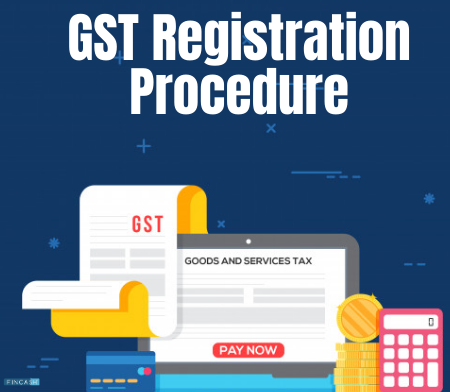Contrast and Select the very best GST Registration Services in Singapore for Your Requirements
Contrast and Select the very best GST Registration Services in Singapore for Your Requirements
Blog Article
Throughout: The Ultimate Roadmap to GST Enrollment for Organizations Seeking Financial Security
Navigating the complexities of Item and Solutions Tax Obligation (GST) registration is a critical action for services aiming for monetary stability. From recognizing the fundamental concepts of GST to following post-registration guidelines, the procedure can seem intimidating initially glimpse. Breaking down the roadmap into convenient steps can enhance the registration trip for organizations looking to enhance their monetary standing. Let's explore the crucial parts that make up this utmost roadmap and uncover just how each stage adds to laying a strong foundation for economic success.
Comprehending GST Essentials
Exploring the basic concepts of Item and Provider Tax (GST) is important for acquiring a thorough understanding of its ramifications on businesses and the economic climate. GST is a value-added tax levied on the majority of goods and services for residential usage. It has actually replaced numerous indirect taxes that existed in the pre-GST age, streamlining the tax obligation structure and boosting simplicity of doing company in India. Under the GST system, both items and services are strained at a certain rate, which is determined based upon their classification. If their annual turnover surpasses the threshold restriction established by the federal government, companies are needed to sign up for GST. Input Tax Obligation Credit Report (ITC) is a considerable feature of GST, permitting companies to declare credit for tax obligations paid on inputs, decreasing the overall tax worry. Understanding the fundamentals of GST is essential for organizations to adhere to tax obligation regulations, handle their finances successfully, and add to the country's economic development by taking part in a transparent tax system.
Qualification Criteria for Enrollment
As of the existing regulations, the threshold limit for GST enrollment is a yearly aggregate turn over of 40 lakhs for businesses running within a state, except for special group states where the limitation is 20 lakhs. Furthermore, specific companies are required to sign up for GST irrespective of their turnover, such as interstate providers, laid-back taxable individuals, and businesses accountable to pay tax under the reverse charge device. It is crucial for companies to extensively evaluate their turn over and transaction kinds to establish their GST registration obligations accurately.
Documents Needed for Enrollment
Having met the qualification requirements for GST registration, organizations need to now ensure they have the requisite documents in position to proceed with the registration process successfully. The files needed for GST enrollment commonly consist of proof of company constitution, such as collaboration deed, enrollment certification, or consolidation certificate for different types of organizations. Additionally, companies require to provide files developing visit this page the principal place of company, such as a rental arrangement or electrical power bill. Frying pan card of business, along with the identification and address evidence of promoters/partners/directors, are essential for confirmation objectives. Checking account declarations, together with canceled cheques or a duplicate of the bank passbook, are required to verify the monetary details supplied during registration. In addition, companies should have electronic trademarks ready for the accredited signature. Making sure all these records are organized and conveniently offered will expedite the GST enrollment procedure, allowing businesses to abide with tax obligation guidelines flawlessly.
Step-by-Step Enrollment Refine
Commencing the GST registration procedure includes a collection of structured steps to make sure a compliant and seamless registration for businesses. The very first step is to see the GST portal and submit the enrollment kind with accurate details of business entity. Following this, the candidate receives a Momentary Referral Number (TRN) which is made use of to return to the application process if it's not completed in one go.
Following, all required records as per the list provided by the GST portal demand to be submitted. These records usually include evidence of organization address, enrollment and identity proofs of marketers, economic statements, and service entity's frying pan card.

Post-Registration Compliance Guidelines

Verdict
In conclusion, businesses looking for monetary security needs to comprehend the basics of GST, fulfill qualification standards, gather essential documents, adhere to the detailed registration procedure, and abide with post-registration guidelines - Best GST registration services in Singapore. By adhering to these actions, companies can guarantee compliance with tax obligation regulations and maintain economic stability in the long run
In addition, particular companies are required to sign up for GST regardless of their turn over, such as interstate providers, casual taxable individuals, and companies liable to pay tax obligation under the reverse charge system.Having satisfied the eligibility standards for GST registration, services need to now ensure they have the requisite records in location to continue with the registration procedure effectively. The papers needed for GST enrollment typically consist of proof of organization constitution, such as collaboration action, enrollment certificate, or unification certification for various types of companies. Furthermore, organizations need to supply papers establishing the primary place of organization, such as a rental arrangement or electrical power costs.Commencing the GST enrollment process includes a collection of organized steps to ensure a seamless and certified registration for services.
Report this page